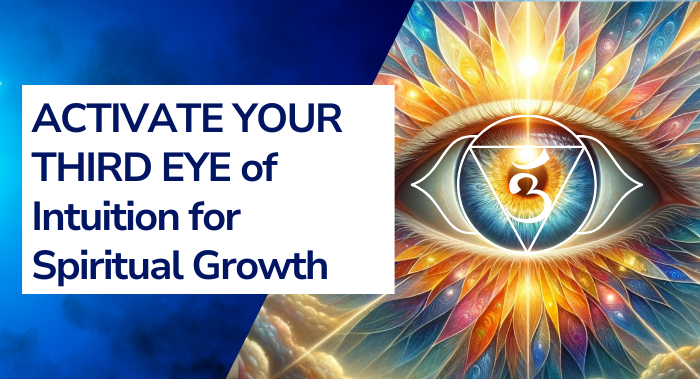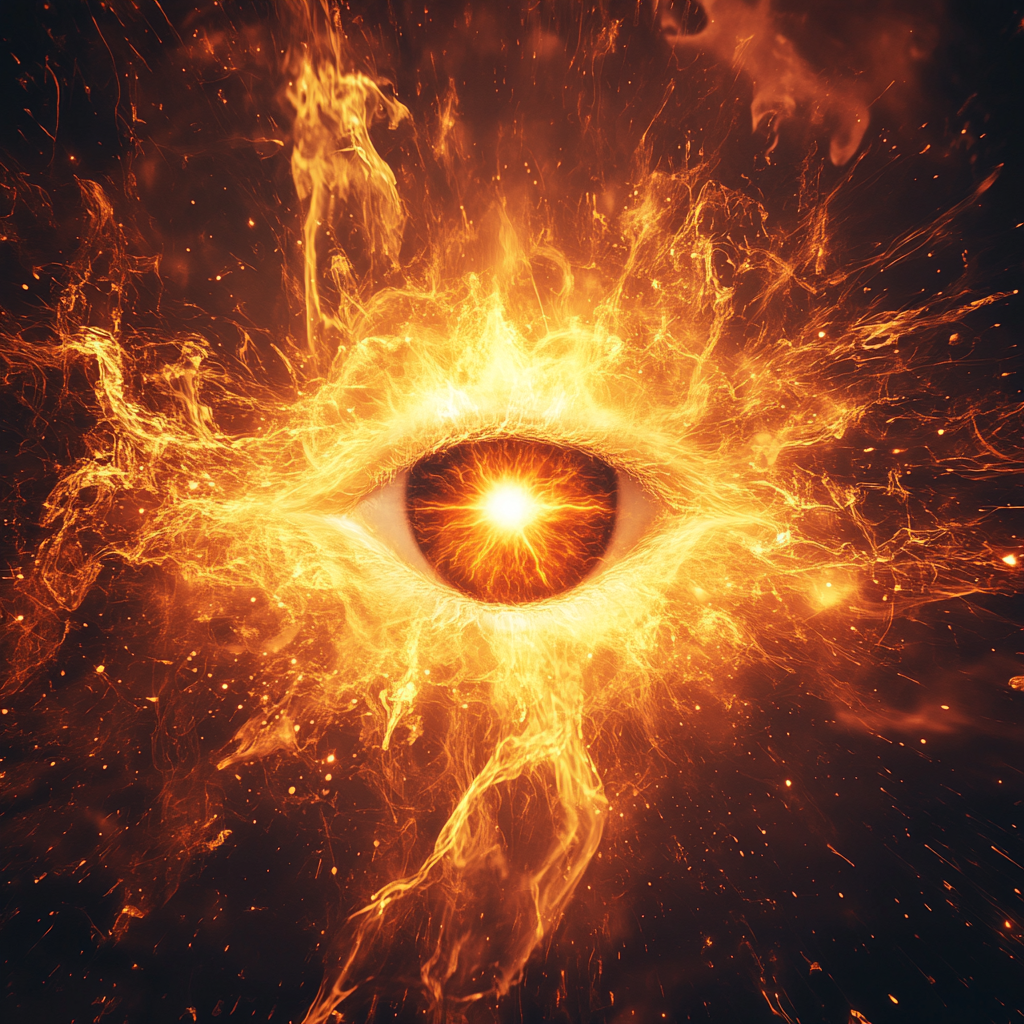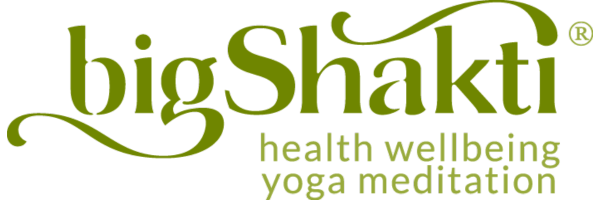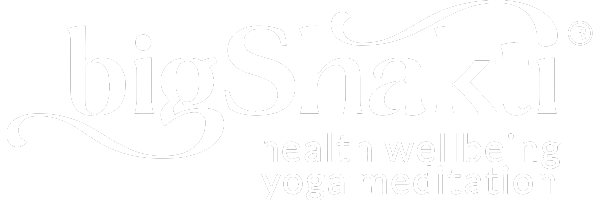Yoga of Mental Health Workshops → More Info
Podcast Ep. 17 ~ Activate Your Third Eye of Intuition for Spiritual Awakening

Power, intuition, and enlightenment
Welcome to the Big Shakti: Light on Yoga and Meditation podcast, hosted by Dr. Swami Shankardev Saraswati and Jane Stevenson. Dr. Shankardev is a yoga acharya, medical doctor, psychotherapist, and Vedic astrologer, while Jane is an intuitive healer, spiritual counselor, and writer. Together, they bring you authentic, in-depth knowledge from various wisdom traditions.
This episode is about the Third Eye Chakra, also known as Ajna Chakra, exploring how awakening this center of intuition can lead to deeper self-awareness and clarity. You'll hear from Dr. Shankardev and Jayne as they share insights from their Awaken Your Third Eye of Intuition course, offering practical guidance on activating and strengthening this powerful energy center. Additionally, we include excerpts from the Light on the Chakras and Kundalini course, where they discuss the balance between intuition and rational thinking, karmic influences, and the path to greater spiritual awareness.
In this episode, we cover:
- The significance of the Third Eye Chakra (Ajna Chakra) and how it awakens intuition.
- Meditation practices to activate and strengthen your Third Eye.
- How balancing intuition with rational thinking helps you navigate life’s challenges.
- Understanding karmic influences that affect your ability to access higher knowledge.
- Real-life examples of how intuition guides us and when it can become dysfunctional.
- How to quiet mental noise, tap into your inner wisdom, and develop a stable relationship with your Third Eye, empowering you to make decisions aligned with your purpose.
Big Shakti Podcast Links
📩 Subscribe to our Newsletter
🎙️ Big Shakti Podcast
🎧 Big Shakti Meditations
🌿️ Big Shakti’s Yoga and Meditation Courses
🧘🏻♀️️Jayne Stevenson’s intuitive healing and dream therapy practice
🧘 Dr. Swami Shankardev’s medical and psychotherapy practice
📹 Big Shakti’s YouTube Channel
Podcast transcript
This podcast episode focuses on the third eye of intuition, ajna chakra. We have compiled two talks by Jayne and myself.
- The first is the introduction to the Awakening The Third Eye of Intuition Course.
- The second is from the Light on the Chakras and Kundalinī Course held in 2022 and 2023.
Part 1 - Welcome to the Awaken Your Third Eye of Intuition course.
The purpose of this course is to support you in activating and awakening ajna chakra, your third eye, also called the divine eye. It is the eye that can see into your soul. One of the great byproducts of activating your third eye is the development of a powerful intuition to gain access to the knowledge and wisdom in you.
Intuition is the ability to perceive all the possibilities inherent in the present moment and know which is best for you at that time. A powerful intuition enables you to make good decisions in line with your life purpose. It also helps you support others and form meaningful relationships. Unfortunately, intuition, which is potential in all of us, is usually dormant or functions erratically unless it is developed through regular meditation practice.
This is why Jayne and I have designed this course to give you the knowledge, techniques, support, and inspiration to initiate and develop a stable relationship with your ajna chakra, your third eye.
The meditation techniques in this course activate your ajna chakra, enabling you to “see” the subtle dimension of your inner being - the part of you that is rich with knowledge, meaning, and purpose, and infinite possibilities.
By turning your attention inward, you connect with yourself and your latent, dormant powers. This connection turns on inner guidance, which is what most people need.
Most people look outside of themselves for guidance, have lost connection with their own inner wisdom, and, therefore, feel lost and confused.
As you develop your third eye, you also have access to your own inner wisdom, which is your intuition. Of course, we all need to learn from the world, but we also need to tune in to our inner sense of what suits us. That is important. Without that inner sense, the outer world can’t make an impression and loses its power and ability to change things for you.
You will learn how to reduce your mental noise so that you can tune into the silence at the core of your being, where great power, knowledge, and wisdom reside. And this is where you will find your intuition.

Part 2 - Here is an excerpt from the Light on the Chakras and Kundalinī Course.
Jayne's lecture
Intuition is the perception that operates independently of concrete reality, logic, and empirical knowledge. Intuition is sudden knowing, the spark of insight that arrives without volition, apparent common sense, and meaning. Intuition communicates in a voice that may or may not sound like your own, in images not of your conscious making, and in unbidden flashes of thought and feeling.
Some intuitive insights come from your individual unconscious; others come from beyond your individual unconscious. When intuition strikes, you know things you haven’t consciously learned or discover an aptitude for something you have not experienced before.
I remember picking up a javelin for the first time in high school. As the teacher gave me my first lesson, I tuned out of the sound of his voice and into the feeling of the javelin in my hand - it felt balanced and very familiar. My first throw traveled so far that I almost speared one of the students standing in a group that was supposed to be a “safe” distance from our group. I knew how to throw the javelin without any training. Likewise, when I first picked up a tai chi sword, it felt like a natural extension of my arm. I could wield the sword with some skill and speed.
My Daoist teacher said this skill was cultivated in a past life. If I had not held those objects, I may never have triggered that intuitive connection to this part of my individual unconscious.
Modern scientific studies on intuition (which are still in their infancy) call this type of intuition “Coherence and Insight.” It is “an ability to subconsciously combine information or capabilities stored in long-term memory to make correct judgments based on fragmentary cues.” In my case, the “fragmentary cues” were simply touching the object.
Many people experience intuitive eruptions of know-how when they encounter objects, certain knowledge, philosophies, art forms, and languages that they have never encountered before. These memories are stored in the vijnānamaya kosha.
I have a private student who, at the age of 8, saw Chinese pictograms in a book. Pictograms are graphic images of the ancient Chinese language. He remembers falling under the spell of these strange symbols and trying to copy them long before he understood their literal meaning. Later, when he studied the Chinese language, he found he had a talent for it. He learned one of the most difficult languages for English-speaking people at record speed. He’s been teaching Chinese for over a decade and still loves those pictograms.
I’m sure many of you have experienced these sparks of spontaneous recognition, inexplicable attractions, uncanny abilities, and ease with a skill or a field of knowledge. Many of you have this intuitive connection to spiritual study and practice. You are “a natural” at some things.
Now, as I said, intuition also exists beyond the individual unconscious. We may suddenly ‘pick up’ information about the past and the future, about the deeper goings-on within other people, objects, and events.
We detect information that seems to be floating in the ether. Intuition, in this sense, can take the form of clairvoyance –clear seeing; clairaudience –clear hearing; and clairsentience –clear feeling.
Intuitions can occur at any time - while waking, dreaming, and in while semi-conscious – in the hypnogogic states of consciousness.
From Jung’s perspective, intuition is one of the four Primary Functions of the Mind. The other three are Feeling, Sensation, and Thinking. These four functions are how we perceive the world and orient ourselves within it. There is a fifth function called the Transcendent Function, which allows us to integrate all four functions.
We each have one dominant function and one weak function. (And we go into depth on Jung’s functions in the Awaken Your Third Eye of Intuition Course (which many of you have already done). Within Jung’s system, the feeling function and intuitive function are closely linked. So when I picked up the javelin and the sword, the feeling of the objects triggered my intuition.
Jung said that each of the four functions can be either introverted or extroverted. Introverted intuition is a process where perception is subjective; it is orientated toward internal-world phenomena, insights, impressions, and ideas. Extraverted intuition is a process where perception is objective; it is focused on the external world of people, objects, and events and sees the relationships, patterns, and abstract connections between them.
In Jung’s paradigm, intuition is an irrational function, opposite to thinking, which is a rational function. A rational function means you use them to order your world because you have control over them, whereas irrational functions happen spontaneously, and you can’t consciously direct them.
At times, intuition can align with and affirm thinking:
For example, let’s say you are driving on a freeway, and the landmarks begin to look unfamiliar. You start to think you may be headed in the wrong direction. You see an exit sign in the distance. But it’s not until you near the exit road that your intuition suddenly kicks in a strong voice, telling you, “TURN NOW!” You take the exit and realize, indeed, you were headed in the wrong direction. So, at the crucial moment, your intuition corroborated your thinking.
At other times, intuition opposes thinking, and this is more often the case for two reasons: Firstly, thinking is a rational function based on the Manomaya kosha. It often fights against the irrational, intuitive function, which is based on the Vijnanamaya kosha. Secondly, for many people, thinking is the dominant function, and in this too-much-information age, thinking is overtaxed.
For example, let’s say you heard or read something bad about a person you are about to meet. Given the information you have, you've already made up your mind that you won’t like them. But the moment you meet, you instantly like the person. And perhaps the person instantly likes you. There’s a spark of intuitive recognition that casts doubt and confusion on what you have heard or read about them.
And we’ve all had experiences where thinking and intuition coalesce, but probably more experiences where they contradict one another. But even when thinking and intuition do coalesce, they are separate functions that rarely align at the same moment because they are different parts of the mind.
- Intuition is irrational, unconscious, quick, nonlinear, and spontaneous.
- Thinking is rational, conscious, slow, linear, and habitual.
Now Jung did say that if any of the 4 Functions of the Mind are dysfunctional that they can pollute or distort the other functions. From the yogic point of view, this means that the psyche, the chakras, and koshas must be purified, balanced, and awakened for them to be fully functional.
Ajna chakra must be healthy for intuition to be connected to reality - for you to have clear psychic perception and also to have a clear-thinking function. This means that you can hold thinking and intuition, which are opposites, in a healthy relationship. This means that your transcendent function is working.
Here’s a true story of how intuition can be dysfunctional: I remember being in Bali. Shankardev was teaching a Yoga Nidra workshop at a yoga festival. The workshop was positioned only a few meters from a drumming workshop, which was taking place at the same time, which was so crazy that it was funny. So, there’s a simple example of dysfunctional thinking - whoever planned the workshops wasn’t thinking straight.
… But this is the story I want to tell you… We met an American woman about 50 years old who told us she was a healer who had left her entire life behind in the US, based on a very powerful intuition that she must change her life and create a new life of total freedom. She had sold her healing therapy business, divorced her, quote, “boring” husband, and left her family. She went on a whirlwind trip to India and Italy and finally ended up in Bali, where she had been for 6 or so months. I mentioned that her journey sounded like Liz Gilbert’s journey in her book Eat Pray Love, which millions of women have read in recent years. The book is a memoir about a woman escaping a conservative husband and life to journey through Italy, India, and Indonesia in search of sensuality, spirituality, and love. “Yes,” the American woman said, her powerful intuition to change her life came after reading Eat Pray Love. As our conversation went on, it turned out that she’d run out of money and was desperate to get back to America to her old life, but her husband and children refused to speak to her - let alone bail her out. She was stuck in Bali, doing eight massages a day for a pittance, trying to make enough money to fly home.
She was broke, exhausted, and ironically trapped - the exact opposite of what she wanted, which was freedom from the mundane.
Now many people within spiritual and creative professions do tend to idealize intuition and neglect the other functions. And it’s understandable since intuition is a higher function related to ajna chakra. But we need to understand that it’s not wise to act on intuition if it is dysfunctional and disconnected from the other functions.
This is probably one of the biggest lessons that most of us get to learn through cold hard experiences.
When intuition is disconnected and dysfunctional, we are open to being easily influenced; not only by external influences, through inspiring stories and media, but also from the upwellings of our samskaras and vasana within the personal unconscious, and the forces of the collective unconscious.
Both external influences and internal upwellings can contaminate intuition. Internal upwellings can come from a parental voice, a cultural or personal bias, unprocessed emotions such as anger, which blinds intuition, apathy, and boredom, which dulls it, and suppressed and unfulfilled desires. These are all powerful, energetic forms – invisible to the physical eyes but very real things.
So, sometimes, you believe your intuition is speaking to you, but it's a desire that you believe is intuition emanating from the unconscious or a reaction to unconscious shadow content. And perhaps that is what was going on for the American woman in Bali. She obviously had big dissatisfactions in her life, and she met with a perfect balm for her dissatisfactions, an inspiring fantasy. The story was factual, but it was Liz Gilbert’s reality and the American woman’s fantasy. She was driven by an intuition contaminated by a powerful desire to escape. Her intuition was not grounded and integrated.
Academics say that Einstein was an advanced bimodal thinker, meaning that he combined a high level of intuition with a high capacity for thinking (what some call balanced "left-brain" or "right-brain" thinking). But even Einstein said, “I believe in intuitions and inspirations...I sometimes feel that I am right. I do not know that I am”. Very wise as well.
So, this balance between thinking and intuition is not a small matter for anyone. It’s not like we can just switch intuition on at will. But rather we create the conditions for it to thrive.
One thing to remember, too, is that even healthy intuition can send you down a rabbit hole, but for a purpose, perhaps to address your karma in some way. So, even a healthy intuition can lead you into non-ideal situations. This is why it’s so important to develop knowledge and spiritual knowledge and to work on your meditation, particularly Ajna Chakra, and hopefully, you are doing other things that make space for intuition to flow in your life.
The ultimate purpose of developing intuition is so that you hear the voice of truth – Satyam, and see the image of light – Guru, when making decisions in all aspects of living, from what you consume to how you live, work, and enjoy your life, and relate to other beings. And it’s through intuition that you reconnect with the gifts that have been with you for many lifetimes.
Big Shakti Podcast Links
📩 Subscribe to our Newsletter
🎙️ Big Shakti Podcast
🎧 Big Shakti Meditations
🌿️ Big Shakti’s Yoga and Meditation Courses
🧘🏻♀️️Jayne Stevenson’s intuitive healing and dream therapy practice
🧘 Dr. Swami Shankardev’s medical and psychotherapy practice
📹 Big Shakti’s YouTube Channel
Categories
- Yoga (13)
- Yoga Tantra (20)
- Meditation (21)
- Meditation Techniques (30)
- Ayurveda (3)
- Carl Jung (5)
- Chakras (14)
- Consciousness (16)
- Diseases (7)
- e-mag (9)
- Everyday Wisdom (6)
- Life Purpose (8)
- Mantras (10)
- Mental Wellness (40)
- Podcast (22)
- Prana - The subtle breath (14)
- Relaxation (18)
- Shadow Self (7)
- Spirituality (12)
- Symbols (2)
- Third Eye - Ajna Chakra (7)
- Wisdom (2)
- Yoga Nidra (12)
- Yoga Philosophy (15)
- Yoga Psychology (13)
- Yoga Therapy (34)
- Yoga Meditation Research (3)
- Articles by Jayne Stevenson (14)
- Articles by Swami Shankardev (25)
- Stress Management (7)
- Emotion (3)
- Self-Awareness (1)
- Self-Regulation (1)
2025 Yoga of Mental Health Workshops
INSTANT ACCESS: Sāṁkhya Philosophy & Mental Health: A Yogic Path to Holistic Well-being
28 APRIL: Uncovering the Roots of Mental Illness: Insights from the Gita & Patanjali
26 MAY: Restoring Self-Regulation: Yogic Techniques for Emotional Resilience & Inner Strength
23 JUNE: Mantra Therapy: Transforming Thought Patterns for Emotional Healing & Mental Wellbeing








